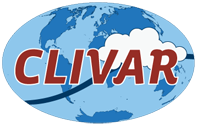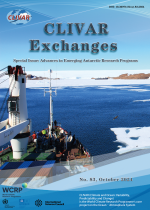The International workshop for mid-latitude air-sea interaction took place successfully

The CLIVAR endorsed workshop 'International workshop for mid-latitude air-sea interaction' was successfully organized virtually in mid-June, with 188 participants including 67 early career researchers and students from all over the world.
This workshop provided a forum for the exchange of ideas on mid-latitude atmosphere-ocean interactions and a wide range of related topics based on state-of-the-art research. Observational, numerical and theoretical studies from weather to climate timescales were reported during the workshop.
The workshop began with a two-day poster session (8-9 June), followed by an oral session (12-14). The oral session was further composed of the plenary and parallel sessions and group discussions. To guarantee the efficiency of the oral session, all the presentations were pre-recorded and uploaded to the shared folders. In total 70 recordings were shared during this workshop.
Multiple tools, including the gather.town, were used for different sessions and activities, as well as social communication. The organizing committee also deliberately scheduled the time to accommodate different time zones. The participants were able to watch recorded presentations, which they cannot see in real time.
An early Career & Student Presentation Award was set for the workshop. Based on evaluation referees of and Scientific Organizing Committee (SOC) members, 8 people from different continents got this award:
- Pragallva Barpanda, University of Colorado (USA)
- Mahdi Hasan, North Carolina State University (USA)
- Jiaxiang Gao, Hokkaido University (Japan)
- Yiming Guo, North Carolina State University (USA)
- Shoichiro Kido, JAMSTEC (Japan)
- Ayumu Miyamoto, University of Tokyo (Japan)
- Morio Nakayama, University of Tokyo (Japan)
- Ayako Yamamoto, Tokyo University of Marine Science & Technology (Japan)
After the workshop, the SOC and the Local Organizing Committee (LOC) made a questionnaire about the logistics and the schedule to improve the overall experience for future events. A report of the experience and lessons learned from this workshop will be published in CLIVAR webpage in the near future.













